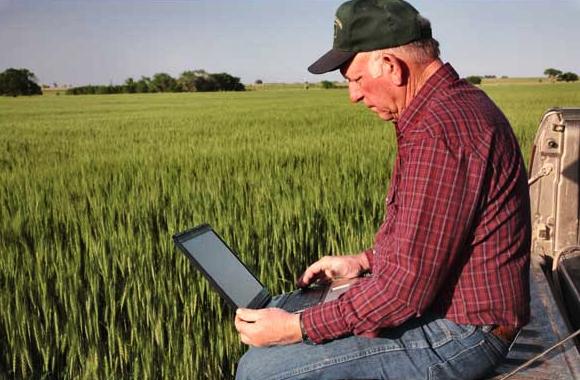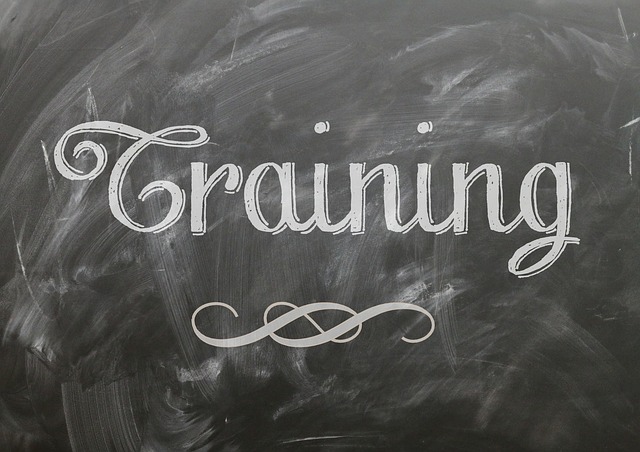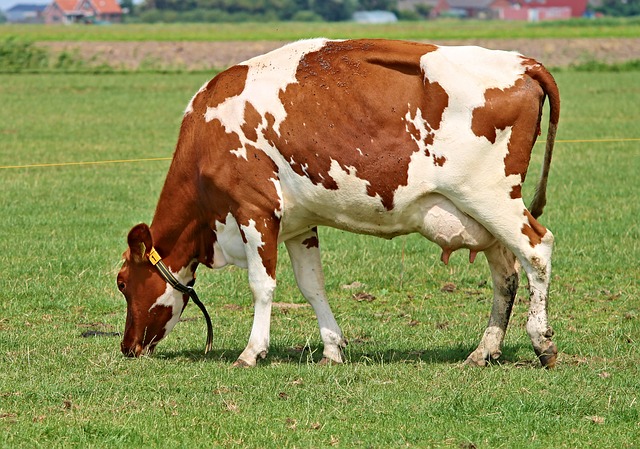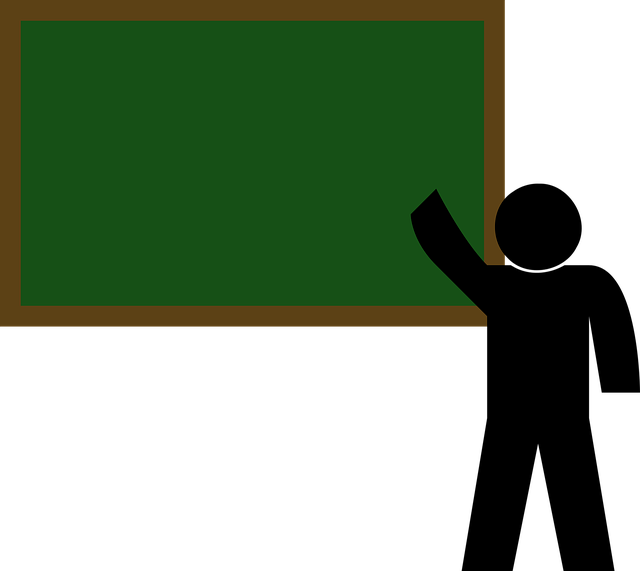Urban Soils Webinar Series

Noon-1:00 p.m.
Tuesdays, January 15, 22, 29 and Feb. 5
Online
Urban soils are unique but relatively understudied in comparison to other soils. Urban areas are increasing across the globe and people living in urban areas have direct contact with and connection to these soils. Consequently, our society needs to expand our knowledge base of these soils. This webinar series is intended to provide an overview of urban soils. The content will be delivered for the practitioner and entry-level scientist working in urban soil. Find out more at
https://www.soils.org/education/online-courses
|
WAB Classic GIS Basics for Nutrient Management Planners

8:00 a.m.
Wednesday, January 16
Madison
GIS basics for those who develop or update nutrient management plans. Contact Sue at
Sue.Porter@wisconsin.gov for more details.
|
Hail Can Happen! Insurance Options for Organic Farms

1:00-2:30 p.m.
Wednesday, January 16
Online
Managing risk is of utmost importance for all farmers, especially organic producers. This webinar will educate organic and transitioning growers on USDA risk management programs and provide a step-by-step guide to enrollment in crop insurance programs. The goals of this webinar are to improve understanding of risk management among organic producers and those seeking to transition to organic. Register at
https://learn.extension.org/events/3522
|
Pasture Management and Climate Change

11:00 a.m.-Noon
Thursday, January 17
Online
Livestock and overgrazed pastures are often looked at as the villains of environmental integrity. What if that wasn't the case, and good pasture management by livestock owners could actually slow down or reverse climate change? Alayne Blickle, creator and director of Horses for Clean Water, will review basic techniques for good pasture management including how grasses grow, creating a winter paddock, spreading compost, rotational grazing, and managing small grazing areas. Proper land and soils management can positively affect horse health and livestock well-being, land productivity, cost-effectiveness, and climate change.
There is no cost to participate, but space is limited. Registration will be accepted on a first-come, first-serve basis. To register, email Debra Bogar at
deb-bogar@nacdnet.org WITH your name, title, district or business name, state, and email address. Information to access the webinar will be sent by email.
|
Nutrient Management Planning
Full course (12 hours):

Spencer - January 17-February 21
Wausau - January 23-February 6
Spencer - January 24-February 7
Wisconsin Rapids - March 5-19
Refresher course (9 hours):
Spencer - January 17 & 31
Wausau - January 23 & 30
Spencer - January 24 & 31
Wisconsin Rapids - March 5 & 12
|
Wisconsin Grower Trainings

January 18 - Waukesha
January 23 - Shawano
February 7 - Baldwin
February 15 - Madison
February 28 - Green Bay
March 15 - Portage
Trainings will include these seven modules: Introduction to Produce Safety; Worker Health, Hygiene and Training; Soil Amendments; Wildlife, Domesticated Animals and Land Use; Agricultural Water Part I: Production; Water Part II: Postharvest Water Postharvest; Handling and Sanitation Developing a Farm Food Safety Plan. In addition to learning about produce safety best practices, key parts of the FSMA Produce Safety Rule requirements are outlined within each module. Find our more at https://datcp.wi.gov/Documents/181119ProduceTrainings.pdf
|
Technical Service Provider Conservation Plan Supporting Organic Transition
 10:00 a.m.-3:00 p.m.
10:00 a.m.-3:00 p.m.
Tomah
T
echnical service providers (TSPs) can provide services to farmers transitioning to organic production on behalf of USDA's Natural Resources Conservation Service (NRCS). NRCS provides financial assistance to farmers in developing an organic transition plan. The plan must be written by a technical service provider. This training will discuss the process in becoming a technical service provider and how to write a conservation plan supporting the organic transition, including the technical requirements, planning resources, and format. Check out
https://wisconsinlandwater.org/training/statewide-training-events
for the training agenda and to register by January 16.
|
Farming Your Finances - Beef Edition
 6:00-8:00 p.m.
6:00-8:00 p.m.
Thursdays - January 24, 31, February 7
Medford
You will learn about record keeping, and using a beef case study throughout, participate in activities concerning the balance sheet and income statement. Together we will analyze and interpret these statements and benchmark the financial position and performance of the case farm.
For more information, contact Taylor County UW-Extension at (715) 748-3327 ext. 1.
|
Informational Meeting on Industrial Hemp
 10:00 a.m.
10:00 a.m.
Monday, January 28
Green Lake
Bryan Parr from Legacy Hemp will be presenting on best practices for getting industrial hemp to grow. A representative from DATCP will inform you on how to obtain licensing. The day will be rounded out with a couple of seasoned growers discussing what worked for them, what they might do differently, and which direction they hope the industry will go. Pre-registration is required by Friday, January 25, to help with lunch and materials planning. To sign up call Green Lake County UW-Extension at (920) 294- 4032 or register online at
https://goo.gl/B6URrj
|
Farm Financial Management
 10:00 a.m.-2:00 p.m.
10:00 a.m.-2:00 p.m.
Tuesday, January 29
Green Lake
It seems like the cost of living and farming is on a never ending incline while income levels continue to decline. Do you have the tools necessary to make sound financial decisions? Katie Gellings and Ben Jenkins will show you how to go about getting the information you need in order to live and farm better even in these trying times. Who should attend? Anyone wanting to get into farming, anyone already farming, and anyone whose job it is to pay the bills on the farm. To register call the Green Lake County UW Extension Office at (920) 294-4032 by January 25.
|
Enterprise Budgeting: Selling Grazing Through the Numbers
 9:30 a.m.-3:30 p.m.
9:30 a.m.-3:30 p.m.
Tuesday, January 29 (snow date Jan. 30)
Stevens Point
The environmental benefits of management intensive rotational grazing (MIRG) are well known. Farms under MIRG management experience less soil erosion and nutrient loss than row crops or continuous grazing management. However, there is a stigma that grazing is less economical than cropping. In this workshop, we will show how you can demonstrate that grazing can pay by using enterprise budgets. We will use Excel spreadsheets to compare the economics of several grazing enterprises with raising row crops and conventional beef. This training will focus heavily on grass fed beef production, as well as grazing dairy heifers. We will also touch on how this enterprise budget approach can be used to sell other conservation management systems, particularly no-till. Participants will be introduced to a variety of pre-made enterprise budgets that will be useful to farmer and conservationist alike. 4.5 Professional Development Continuing Education Units (CEUs) will be offered. Check out
https://wisconsinlandwater.org/training/statewide-training-events
or c
ontact Penny at
penny@wisconsinlandwater.org
f
or more information.
|
WCA Annual Legislative Exchange

February 5-6
Madison
The Wisconsin Counties Association Annual Legislative Exchange is a two-day event that hosts over 200 government officials from around that state to discuss key issues facing counties. Attendees include county board chairs, supervisors, executives, and administrators representing all 72 counties. In addition, members of the Wisconsin State Legislature, Supreme Court, administration officials, and other business associates attend the Tuesday night county reception. No other WCA event offers this intimate setting for sponsors to market themselves to not only county leaders, but state government leaders. For information contact Cheryl Fleck at (866) 404-2700.
|
Lower Financial Risk by Increasing Soil Health
 1:00-2:30 p.m.
1:00-2:30 p.m.
Wednesday, February 6
Online
Building soil health through improved crop rotations, cover cropping, organic soil amendments, and other organic practices can improve yield stability and reduce risks of losses to drought, temperature extremes, weeds, and other stresses. Farmer experience and research have shown that healthy soil is the best form of crop insurance. Based on organic agricultural research and producer experience, this webinar will explore how several key soil health practices can reduce risks during organic transition and organic production. Register online at
https://learn.extension.org/events/3523
|
Getting Started with Soil Physical Properties for Field and Hoophouse
 6:00-7:00 p.m.
6:00-7:00 p.m.
Wednesday, February 6
Online
MSU Extension Educator Fred Springborn will address the effects of soil texture and structure on water retention and spring warm-up, and how these soil characteristics can be improved. This program is part of a 12-webinar Michigan State University Extension 2019 Beginning Farmer Webinar Series. A descriptive flyer and on-line registration and payment for any or all of the webinars is available at
https://events.anr.msu.edu/begfrmr19/. If you register after a webinar is completed, a link to a recording of the completed webinars will be provided.
|
PDPW Social Media Strategy Workshop
 9:00 a.m.-5:00 p.m.
9:00 a.m.-5:00 p.m.
Thursday, February 7
Madison
Don't be left in behind in your communication efforts. Attend the PDPW Social Media Strategy Workshop to begin mastering key elements of developing a social media strategy - not just a presence. This training will give you the vision, tools, and analysis strategies to venture into a digital space for your dairy's brand and consumer-engagement efforts. Key trainings points will position you to:
- Manage your dairy's digital presence
- Plan and identify your target audience
- Create compelling content, promotions, and ad campaigns
- Monitor, measure, and analyze performance
- Confidently manage conflict in a digital space
- Discover and engage in partnerships with influencers and community to build your network
|
Farming with Beneficial Insects for Pest Control
 9:00 a.m.-3:30 p.m.
9:00 a.m.-3:30 p.m.
Friday, February 8
Edgerton
Learn science-based pest management strategies to integrate beneficial insects back into cropping systems for natural pest control. Find out how to support these insects that provide pest control, how common farm practices can impact beneficial insects, and how to assess and create farm habitat for beneficial insects. Registration includes Xerces Society book, Farming with Beneficial Insects, and relevant USDA-NRCS and extension publications.
Register at https://dane.extension.wisc.edu/2018/12/14/farming-with-beneficial-insects-for-pest-control/
|
Dairy Wellbeing Workshop
 8:30 a.m.-3:0 p.m.
8:30 a.m.-3:0 p.m.
February 12 and 13
Green Bay
Two one-day repeating workshops will feature tours and leading experts to help take cow comfort practices to the next level.
Between in-class sessions with Dr. Jennifer Van Os, PhD, Dr. Nigel Cook, DVM, a guided tour of American Foods Group to hear from beef buyers, market experts, and USDA meat inspectors. You'll walk away with the insights needed to thrive in animal care, behavior, and on-farm management practices. Find out more at https://pdpw.org/programs/Dairy-Wellbeing-Workshop/details
|
Money Matters on the Farm: Budgeting, Cost Sharing, and Managed Grazing
 10:00 a.m.-4:00 p.m.
10:00 a.m.-4:00 p.m.
February 15 - Mauston
March 1 - Green Lake
March 8 - Wautoma
The concepts covered apply to all businesses, making this workshop beneficial to any entrepreneur. Designed for those interested in learning about or improving their farm financial management skills, Farming Your Finances-Beef Edition is completed over three evenings during which you will learn about the financial management model. You will learn about record-keeping, and using a beef case study throughout, participate in activities concerning the balance sheet and income statement. Together we will analyze and interpret these statements and benchmark the financial position and performance of the case farm.
For more information, go to https://www.goldensandsrcd.org/
|
Critical Methods in Wetland Delineation

8:00 a.m.-4:30 p.m.
Tuesday, February 19
Madison
Topics covered include:
- Wetland and Waterway Permitting Updates
- Wetland Mitigation Updates
- The Development of an In-Lieu Fee Program in Wisconsin
- Wisconsin Floristic Assessment in Wisconsin
- Farm Service Agency Slide Review Interpretation
- Updated Guidance for Delineating Wetlands in Wisconsin
- Wetland Delineation Protocol review
- Development of Invasive Species Best Management Practices for Wetlands
|
Integrating Crop Diversity into High Tunnel Production Systems

1:00-2:15 p.m.
Tuesday, February 19
Online
High tunnel production has continued to grow in the midwest providing an engine for local food production. However, many growers choose to utilize these structures primarily (or even exclusively) for tomato production leading to very little room for crop rotation. At K-State, we have been working on research projects to determine the feasibility of high tunnels for other high-value crops like strawberries, sweet potato slips, melons, and others in addition to cover cropping strategies for high tunnel growers. During this presentation, we will explore some of these options and discuss different strategies for incorporating diversity into high tunnel production. Register at
|
Nutrient Management for Crops, Soil, and the Environment

1:00-2:15 p.m.
Wednesday, February 20
Online
This webinar includes a discussion of the role of soil health and the soil food web, including practical guidelines for optimizing crop nutrition, minimizing adverse environmental impacts of organic fertility inputs, and adapting soil test-based nutrient recommendations (especially N) for organic systems. Register at
https://ofrf.org/news/register-now-free-webinar-series-soil-health
|
Financial Literacy for Dairy

February 20-21, March 28-29, April 10-11
Marshfield
In this curriculum written by dairy economic expert Dr. David Kohl, attendees will participate in a multi-session course at the level most suited to them, based on an online assessment. Experts in dairy finance will teach the principles of financial reports as well as how to derive and understand the numbers that drive profitability, benchmark to measure progress, and set financial goals. Find out more at
https://pdpw.org/programs/2018-19FinancialLiteracy/details
|
Designing Cover Crops to Work for Your Farm

11:00 a.m.-Noon
Wednesday, February 27
Online
Cover crops can provide a host of benefits, including controlling weeds, reducing erosion, adding nutrients and soil organic matter to soil, providing habitat for pollinators, alleviating soil compaction, and various other functions. However, not all cover crops are equal. This workshop will provide information about what cover crop species and management techniques are optimal for the various desired functions, and how to utilize cover crops that make sense for your farm. Register online at
http://extension.umd.edu/womeninag/webinars?mc_cid=8903359e7f&mc_eid=642710f382
|
PDPW 2019 Weather Forecast

Noon-1:00 p.m.
Wednesday, February 27
Online
Hear long-range weather predictions, and assess current projections for the 2019 growing season. We'll also address grain markets by pointing out stressors across the country that could impact grain prices moving forward. In addition, we'll showcase methods of forecasting excessive heat, moisture, and drought.
Take more control over the role weather plays on your crops, herd health, and milk production; start using the tools and resources available to make the unpredictable more predictable. Register at
https://pdpw.org/programs/PDPW-World-Class-Webinars-2019-Weather-Forecast/details
|
Ag Day at the Capitol

Wednesday, March 20
Madison
Ag Day at the Capitol is an annual event open to Wisconsin farmers and agriculturists to learn more about state issues affecting agriculture and meet with their state legislators. Find out more at
https://wfbf.com/events/ag-day-at-the-capitol/
|
|
Wisconsin Association for Environmental Education Winter Workshop
January 18-20
Tomahawk
Powering Local Leadership Summit
January 24-25
Appleton
Driftless Region Beef Conference
January 24-25
Dubuque, IA
OGRAIN Winter Conference
January 24-26
Madison
Wisconsin Soil and Water Conservation Society Annual Conference
January 25
Warrens
Emerging Farmers Conference
January 25-26
St. Paul, MN
WI Farmers Union 88th Annual State Convention
January 25-27
Appleton
Wisconsin Fresh Fruit & Vegetable Conference
January 27-29
Wisconsin Dells
Esri Federal GIS Conference
January 29-30
Washington, D.C.
Wisconsin Corn/Soy Expo
January 31-February 1
Wisconsin Dells
GrassWorks Grazing Conference
January 31-February 2
Wisconsin Dells
Organic Vegetable Production Conference
February 1-2
Madison
Soil Health Conference
February 4-5
Ames, IA
Annual Driftless Area Symposium
February 5-6
La Crosse
Grower Education Conference & Industry Show
February 5-7
Stevens Point
NASECA-WI Annual Conference & Trade Show
February 6-7
Wisconsin Dells
Society for Range Management Conference
February 11-14
Minneapolis, MN
Grazing Conference
February 11
Portage
Midwest Forage Association, Wisconsin Custom Operators & Professional Nutrient Applicators Association of Wisconsin Symposium
February 18-20
Wisconsin Dells
Wetland Science Conference
February 19-21
Madison
Wisconsin Cover Crop Conference
February 20
Stevens Point
Midwest Cover Crops Conference
February 21
Springfield, IL
MOSES Organic Farming Conference
February 21-23
La Crosse
Midwest Aquatic Plant Management Society Conference
February 25-28
Chicago, IL
Midwest Manure Summit
February 27
Green Bay
American Water Resources Association Conference
February 28-March 1
Delavan
Watershed Conference
March 5-6
Green Bay
Dairy Forward-PDPW Business Conference
March 13-14
Madison
WI Land+Water Annual Conference
March 13-15
Lake Geneva
Red Cedar Watershed Conference
March 14
Menomonie
|
|